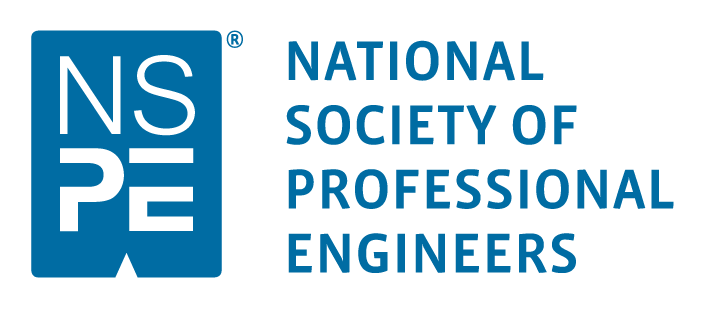Why a Thorough and Accurate Reserve Study is Essential for Homeowner Associations
A detailed and accurate reserve study is a critical aspect of community management. According to the Community Associations Institute, there are approximately 347,000 community associations in the United States, housing roughly 73.5 million Americans. These community associations are prevalent across the Garden State, and NJ reserve study professionals play an essential role in helping them ensure that they are adequately funded both for the short- and long-term needs of the community.
Governed by a board of directors, common-interest communities or homeowner’s associations (HOAs) offer a clean and cohesive neighborhood for everyone. To maintain such quality of life within the community, members of the HOA board must ensure that there is a funding plan in place for shared assets and common areas such as sidewalks, parks, parking lots, and shared HVAC systems (if any).
HOA reserve studies can help the board get a complete picture of their finances. When done by a professional, it can provide a detailed view of the current and future funds, allowing them to plan for significant expenses.
Here are the reasons why HOAs in New Jersey need a thorough and accurate reserve study:
- Maintain Good Property Values
Many homeowners don’t want to pay into reserve funds because they think they may not be living in the community in the future when the repairs will be made. However, it is crucial to consider that these homeowners are using such shared amenities and contributing to the wear and tear that will cause their repair or replacement.
When the time comes for homeowners to sell their home, the financial health of the association will be one of the first things that the buyer and their mortgage lender will consider. When the shared amenities are well maintained because of the adequate reserve, homeowners will have more selling power because the property holds its value and curb appeal even if they decide to move at a later time. Otherwise, an underfunded reserve can deter prospective buyers from purchasing the home.
- Avoid Special Assessments
Special assessment refers to a situation where a repair or replacement of shared assets is deemed necessary by the HOA. Still, the available funds are insufficient to cover the expense of the project. Often, homeowners don’t appreciate when special assessments happen. By having a detailed reserve study, an adequate reserve fund can be established, and special assessments are less likely to take place.
- Ensure Minimal and Predictable Increase in Dues
A reserve study conducted by a professional typically includes a recommendation to fund the reserves consistently with slightly increasing contributions by homeowners. As such, it will be easier for homeowners to pay their monthly or yearly dues since the increase will be minimal and predictable.
- Minimize Potential Mismanagement Lawsuits
One of the top reasons HOAs get sued is due to failure to maintain, repair, or replace common elements in the community. When the board fails to repair or replace a component after its useful life ended or after a calamity struck, homeowners can decide to file a lawsuit asserting the board did not handle their responsibilities appropriately.
Steps to Ensure a Thorough and Accurate Reserve Study
If the HOA fails to ensure a thorough and accurate reserve study, it can lead them to make inaccurate budget plans, incur unexpected expenses, and use an erroneous maintenance and repair schedule, which could lead to the total replacement of the community’s essential systems and components.
Though it may seem daunting and complex to navigate the waters of a reserve study, it is possible with a professional experienced in conducting such special assessments.
- Hire a NJ Reserve Study Expert
The first step to ensure a thorough and accurate reserve study is to hire a professional who follows the National Reserve Study Standards. This will ensure that standards are being met and language remains consistent in the event they will partner with a new reserve study expert in the future.
It is also better to hire a professional engineer with years of experience in reserve studies rather than a standard one. With their expertise, there is the assurance that a comprehensive inspection is undertaken and an accurate estimate of the useful lives and replacement costs of common-interest components are achieved on time.
- Understand the Different Types of Reserve Studies
There are three types of reserve studies:
- Full Reserve Study – This type of reserve study is for associations that are having their first reserve study performed or for associations that are not confident with their previous case study. The scope of this study includes the inspection of the community properties and all accessible reserve components.
- Reserve Study Update with Site Inspection – This type of reserve study should be initiated by the HOA board every three to five years. In this type of study, the hired professional will verify all the components but will use the quantities and measurements from the previous case study. This study helps ensure accurate reporting of the wear and tear of association’s amenities, as well as ensure that nothing was missed during the full reserve study.
- Reserve Study Update Without a Site Inspection – This study is also for associations that have had an accurate reserve study done previously. It does not involve any site inspection, although it takes into account factors such as balance changes, inflation, and regulatory requirements that might affect the reserve fund.
3. Be Familiarized with Key Terms
Being familiar with at least some of the most common reserve study terms can help the HOA communicate more effectively with the reserve study expert and ensure a complete reserve study report.
Some of the most common terms in a reserve study include:
- Reserve Component List – An itemized list that the association is responsible for maintaining, and that will need future repairs.
- Useful Life (UL) – Explains how long a common-interest component should last.
- Remaining Useful Life – The estimated amount of time that a reserve component is expected to function before it needs to be replaced.
- Reserve Fund Strength – The amount of money the association has set aside in its bank account for upcoming repairs.
- Reserve Funding Plan– A calculated report that shows what the association needs to do to either stay on track or get back on track financially.
- Update the Reserve Study Regularly
Depending on the type of reserve study, associations must conduct a regular reserve study to assure that all information will remain current. Otherwise, an outdated reserve study can lead to special assessments, or worse, claims of mismanagement. The association will also miss the benefit of new technologies or money-saving opportunities that may not have been available to them when the last reserve study was conducted.
Conclusion
When properly maintained, HOA-shared assets can provide the whole community with a safe and healthy space to live. However, it takes adequate funding to preserve assets, perform repairs, and replace outdated components. Fortunately, thorough and accurate reserve studies performed by a professional should enable the association to plan accordingly and prepare enough funding for major expenditures down the road.
Contact Lockatong Engineering today for more information on how to ensure a thorough and accurate New Jersey reserve study.








